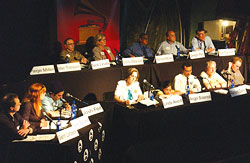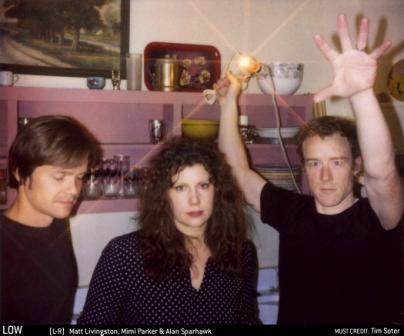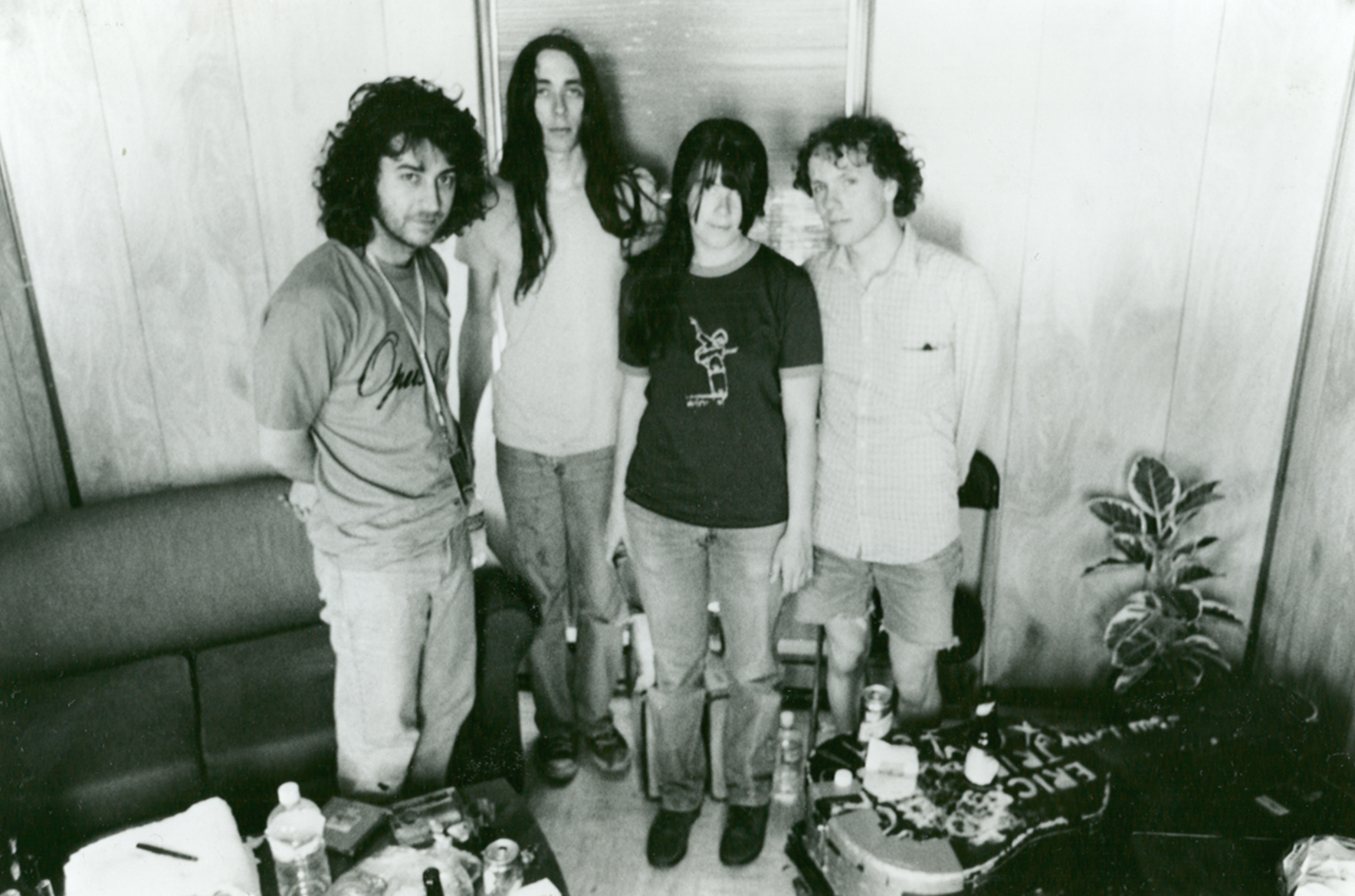Picture Seattle City Council President Jan Drago launching into a meandering response to a question from a constituent. Just as her answer reaches the two-minute mark, she is silenced by a screeching record—the rock and roll equivalent of a dunking booth.
Not your typical public meeting, obviously. This was one scene from an unconventional gathering of local music industry players, music fans, and City Council candidates that took place at Neumo’s on Wednesday, June 29. It was organized by the nonpartisan Recording Academy, record labels, clubs, and promoters as a way of getting music-industry concerns before the candidates during the run-up to the Nov. 8 election. In light of an economic impact study that identified the music industry as one of Seattle’s prime economic generators, the candidates’ potential support was gauged via prepared and audience questions.
All of the incumbents seeking re-election—Nick Licata, Richard Conlin, Richard McIver, and Drago—were in attendance, along with six challengers (Paige Miller and Mike Thompson were no-shows). Three questions were delivered by a panel—including music activist Kate Becker, the interim executive director of the all-ages VERA Project; Stranger news editor Josh Feit; and Recording Academy trustee Glenn Lorbecki—followed by four additional yes-or-no “lightning rounds.” MC Kerri Harrop encouraged the 130-plus crowd, armed with bio sheets and score cards, to vocally express their approval or frustration with the candidates’ responses. “This is not the symphony you’re at tonight. Your part in local politics will help shape the future of the city,” she said.
The first question posed to the candidates: Are we headed for a clash between Seattle’s lively music scene and plans to increase downtown habitation? What happens when all the new condo dwellers start complaining about noise from the clubs? Drago earned a few hollers for her initial thought on the matter: “If you want peace and quiet, you better live in the suburbs,” a sentiment more or less echoed by other candidates courting the favor of the music community during the evening.
Other issues raised included zoning and the high cost of housing. “If we price out musicians, it won’t be Seattle—(full of) creativity and people pursuing that creativity with a raw passion,” said Position 8 candidate Robert Rosencrantz. Drago’s challenger, Metro bus driver and socialist Linda Averill, was also concerned with affordable housing and called for “density not at the expense of living quality.”
The lightning-round questions drew unanimous responses. Should the city financially support the VERA Project? Yes. Would you favor tax breaks for music-related businesses? Yes. Should there be age limits on concerts that continue after 10 p.m.? No. The only exception was a question concerning a potential smoking ban. While proud smoker Richard McIver held up a pack of Camels as response, candidate Darlene Madenwald, seated to his right, revealed her position as president of the state’s American Lung Association. The divisive subject left the politicos struggling to sum up their opinions in a “yes” or “no,” which cued the auditory ax a couple times more.
Along with Averill, whose idealistic frustration was obvious even among the liberal-leaning group, at least one audience member pushed the candidates to get real with the crowd about their intentions. With so many priorities on the table, it was hard to envision how the politicians planned to move forward. And here the candidates expressed frustrations of their own. Incumbent McIver and King County Council member Dwight Pelz complained that the forum’s rapid-fire format left little time to give thoughtful answers.
Despite the somewhat hurried nature of the event, Harrop declared it a success. Many candidates stayed to hobnob with the public, as others took off to enjoy the weather. As for Pelz, he was spotted later singing karaoke at the Comet Tavern across the street. If only all City Council meetings could inspire such passion.








